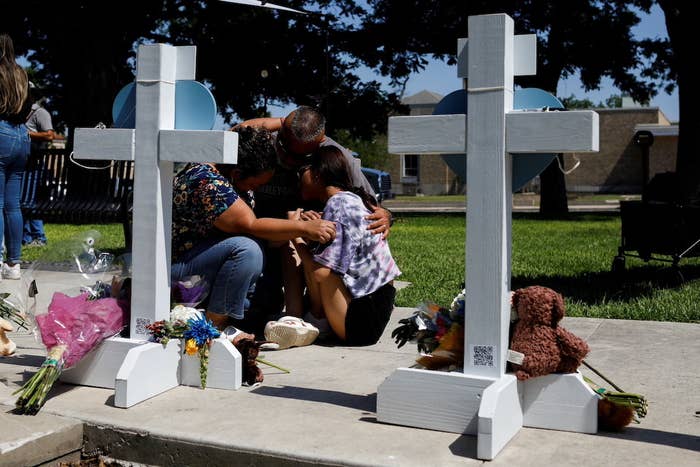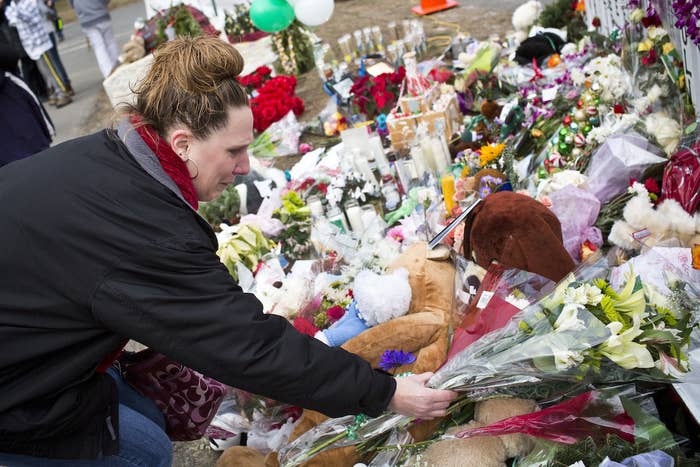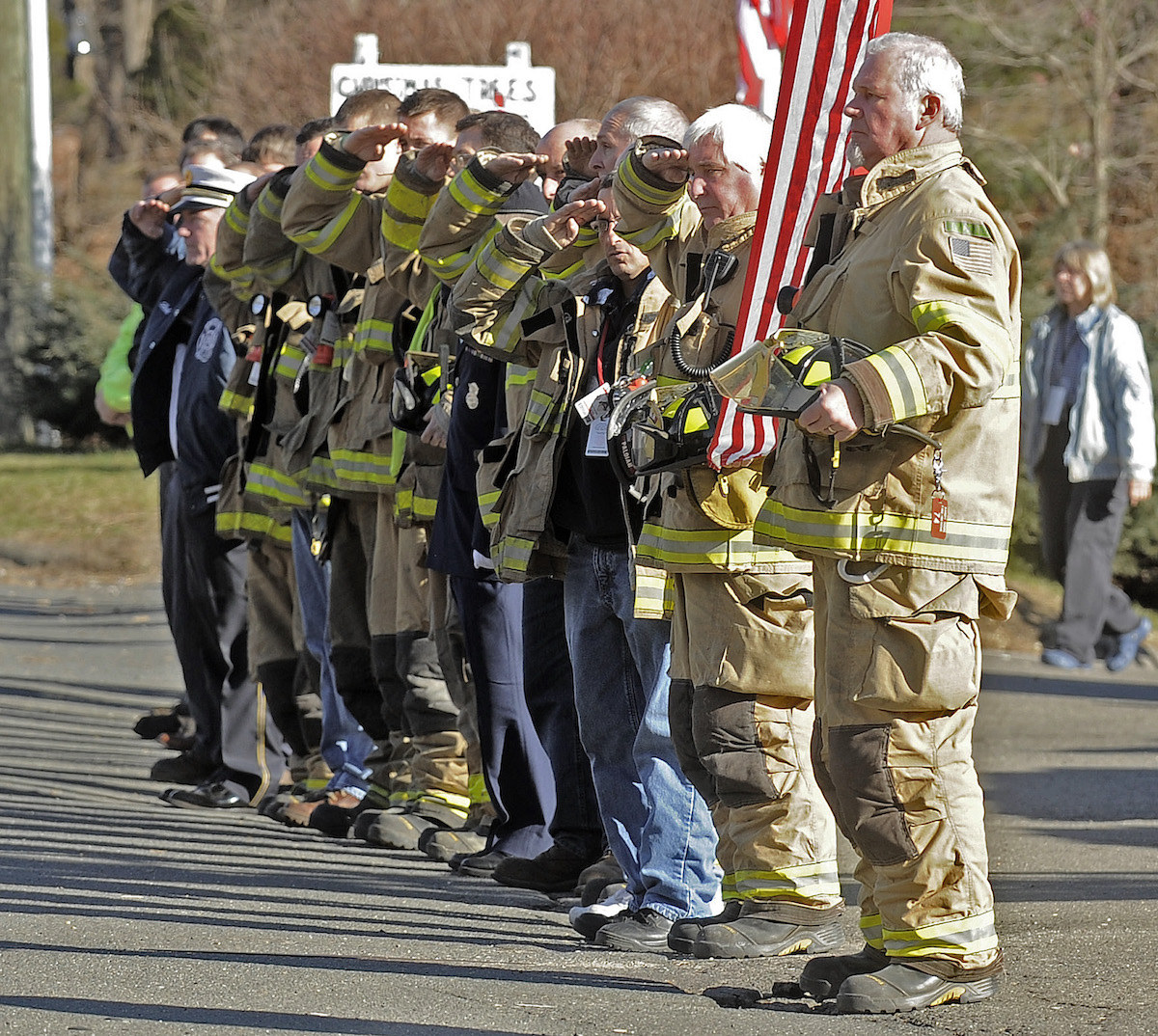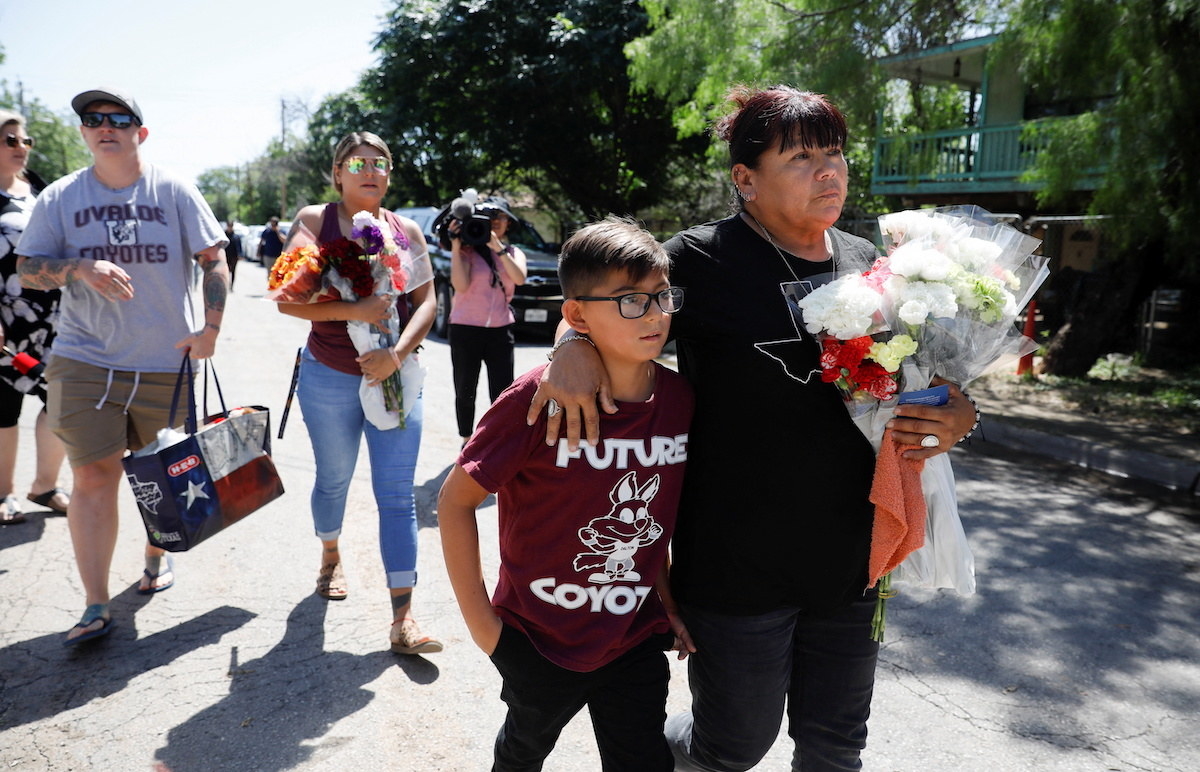
A nation horrified at the senseless murders of grade-schoolers in their classroom. A young gunman who shot a relative at home before fatally shooting children at the scene with legally obtained semiautomatic weapons. Urgent calls across the country for lawmakers to finally do something — anything — on gun control to spare us from similar bloodshed in the future.
The aftermath of this week’s tragedy in Uvalde, Texas, feels eerily similar to that of the last massacre at an elementary school, 10 years ago in Newtown, Connecticut.
When 20 children and 6 school workers were killed in 2012 at Sandy Hook Elementary School, many at the time felt that the deaths of young kids might finally prompt a legislative and cultural reckoning about guns in America.
“The event was random and extreme,” four scholars wrote months later in a piece for the Disaster Health journal. “Americans identified closely with Newtown. A sitting President made this rampage shooting his personal mission. Powerful psychological reactions spread nationwide. The mass media ‘framing’ brought unrelenting focus to this episode. Social media messaging reverberated throughout the digital sphere, keeping individuals engaged in multi-way conversation.
“Collectively,” they wrote, “these elements created a ‘tipping point’ moment.”

And yet, amid unrelenting GOP resistance, nothing ultimately changed. Republicans and Democrats failed to reach any compromise — and the shootings continued. Sandy Hook was not the tipping point that gun control advocates had prayed it would be.
The failure of Congress to pass any meaningful gun reform in the wake of the 2012 massacre may provide a grim, exasperating portent for what may await those seeking change after this week’s tragedy.
“I am sick and tired of it,” President Joe Biden said after the Uvalde shooting. “We have to act. And don’t tell me we can’t have an impact on this carnage.”
In his address on Wednesday, Biden specifically mentioned what happened when the 1994 assault weapons law expired 10 years later.
That ban, passed as part of a sweeping anti-crime bill spearheaded by Democrats, barred the “manufacture, transfer, and possession” of more than 100 firearm models and any magazine capable of holding more than 10 rounds.
As a compromise, the ban allowed those who already had such weapons to keep them. It also included a “sunset provision,” which meant it would expire after 10 years without renewal from Congress.
When that date came, Republicans had long since taken the House of Representatives and the law wasn’t reupped.
But it appeared to be effective. Studies showed that the number of victims killed in mass shootings fell slightly in the years it was in effect, and then rose once it expired.
In his speech this week, Biden was highly critical of the continued sale of assault weapons, which include the two AR-style rifles the Uvalde gunman purchased legally just days before the shooting. (In the case of Sandy Hook, the weapons used had been legally purchased by the shooter’s mother, who was killed with these guns before the school attack.)
“The idea that an 18-year-old kid can walk into a gun store and buy two assault weapons is just wrong,” Biden said. “What in god’s name do you need an assault weapon for except to kill someone? Deer aren’t running through the forest with Kevlar vests on, for god’s sake. It’s just sick.”
After Sandy Hook, then-president Barack Obama put his deputy, Biden, in charge of spearheading what they might do to reform gun laws, both through executive actions and in Congress.

“We were doing everything we could to lessen the chances of someone coming into possession of a weapon and slaughtering people,” Shailagh Murray, who was then Biden’s deputy chief of staff, told the Washington Post this week. “It was probably the most substantive exercise that we undertook in the office the whole time I was there, and people from all over the government participated.”
On Capitol Hill, two gun-owning senators — Democratic Sen. Joe Manchin of West Virginia and Republican Sen. Pat Toomey of Pennsylvania — teamed up for a bill that modestly tightened laws by expanding background checks for sales online and at gun shows. But there was also a vote on whether to bring back the ban on assault weapons and high-capacity magazines.
Ultimately, though, both bills failed to overcome the 60-vote filibuster threshold in the Senate and faced fierce resistance from the National Rifle Association.
“This was a pretty shameful day for Washington,” Obama said after the bills were defeated.
Four Republican senators voted in favor of the Manchin–Toomey bill, which failed 54–46: John McCain of Arizona, Mark Steven Kirk of Illinois, Susan Collins of Maine, and Toomey himself. Four Democrats voted against it: Mark Begich of Alaska, Mark Pryor of Arkansas, Max Baucus of Montana, and Heidi Heitkamp of North Dakota. (Harry Reid, then the Senate majority leader, switched his vote to “no “for procedural reasons.) Of those lawmakers, only Toomey and Collins remain in Congress, although Toomey has announced he won’t seek another term.
The renewed call to ban assault weapons ban sank at an even steeper rate of 40 votes in favor, 60 against.
The only Republican to vote in favor was Kirk of Illinois. Democratic Sens. Michael Bennet of Colorado, Joe Donnelly of Indiana, Kay Hagan of North Carolina, Martin Heinrich of New Mexico, Tim Johnson of South Dakota, Mary Landrieu of Louisiana, Jon Tester of Montana, Mark Udall of Colorado, Tom Udall of New Mexico, Mark Warner of Virginia, and Manchin of West Virginia all joined the other four Democrats who voted “no” against the other bill in declining to bring back the assault weapons ban. Of these senators, only Bennet, Heinrich, Tester, Warner, and Manchin remain in office.
Heinrich, Warner, and Bennet have all since switched positions to support the ban.
Manchin has said as recently as this week that he opposes eliminating the filibuster to pass any gun control legislation, although he has also said that talks feel different now. “I’ve never been in this frame of mind,” he said. “I can't get my grandchildren out of my mind.”
As mass shootings struck schools, churches, cinemas, and supermarkets in the years since, many other legislative efforts have continued to come up short. Even on Thursday, Republicans successfully filibustered legislation intended to combat domestic terrorism.
But as parents and families mourned this week in Uvalde, two people who had intimate knowledge of their pain spoke out.

Nicole Hockley and Mark Barden, whose respective sons were killed in Newtown 10 years ago before founding the anti–gun violence group Sandy Hook Promise, offered their condolences to those grieving in Texas but urged others nationwide to “take your heartache, your fear, your anger and sadness, and channel them into action.”
In a statement, they pleaded with Americans to call their representatives and demand “common sense legislation” that upholds Second Amendment rights but still protects children’s lives.
“Now is the time to take bold action,” Hockley and Barden said. “As a country, how much longer can we stand by while innocent children continue to be killed?”
